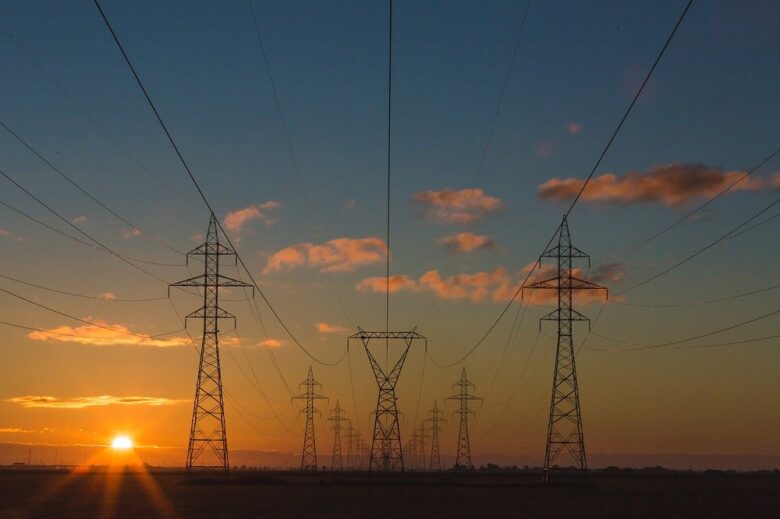By Hannah Grover
The electric sector is facing new challenges nationwide as demands for electricity increase and extreme weather events become more common.
These challenges are contributing to the rising utility costs that are impacting households across the United States.
The U.S. House Committee on Energy and Commerce’s Subcommittee on Energy discussed more than a dozen bills on Wednesday focused on creating an affordable and reliable electric grid.
Jim Matheson, chief executive officer of the National Rural Electric Cooperative Association, said that electric reliability is non-negotiable. He also said that as generation resources are being retired faster than they can be “reliably replaced,” the permitting process must be improved to allow new resources to come online quickly.
The lengthy subcommittee hearing highlighted the partisan divide when it comes to addressing grid reliability. Republicans argued that early retirements of fossil fuel generation could destabilize the grid, and Democrats said President Donald Trump’s policies — including budget cuts and tariffs — are jeopardizing existing efforts to ensure the lights remain on and people can afford their utility bills.
U.S. Rep. Alexandria Ocasio-Cortez, D-New York, said she was concerned about the impact of an increasing load on the grid due to climate change.
“As the summers get hotter, people use more electricity to keep their homes cool and similar things in the winter as well as we start moving toward heat pumps and other kinds of energy and climate technologies,” she said.
Democrats said some of the Republican proposals prioritize fossil fuels even when they are not economical and do not improve grid reliability. The Democrats argued that the proposals come even as Trump’s administration has slashed funding for renewable energy and canceled projects.
“Since he took office, President Trump has done nothing but sow chaos for the energy sector,” Rep. Rob Menendez, D-New Jersey, said.
He criticized the bills that the subcommittee heard on Wednesday and said the proposals focus on fossil fuels like natural gas, which he argued are not as reliable during extreme weather events. Later in the hearing, Menendez said natural gas projects are facing supply chain constraints that makes it hard to bring the projects online in a timely manner.
“While I appreciate that my colleagues think that natural gas power plants are somehow the only solution, the bills that we are discussing today wouldn’t actually help them get online any faster,” he said. “Gas turbine manufacturers have been clear that if you don’t have an order in for a new turbine now, you’re not getting it this decade.”
Rep. Paul Tonko, D-New York, described some of the bill proposals discussed on Wednesday as “members putting a thumb on the scale for types of generation at the expense of the people that will pay for those assets.”
When it comes to affordability, subcommittee Ranking Member Rep. Kathy Castor, D-Florida, said the Trump administration has gutted the Low-Income Home Energy Assistance Program, which provides vital assistance to households struggling to pay their utility bills. In early April, all of the Health and Human Services employees tasked with overseeing LIHEAP lost their jobs. LIHEAP benefits about 6.7 million people and 40% of those people are low-income seniors.
Subcommittee Chairman Bob Latta, R-Ohio, highlighted some of the bills in his opening remarks. He said the Reliable Power Act will task the Federal Energy Regulatory Commission to serve as “a rightful reliability watchdog against unreasonable government overreach.”
Another bill, the GRID Power Act, would ensure dispatchable generating resources — electricity generation that can be started up or powered down to meet the fluctuations in demands — are prioritized, Latta said.
“As we have also heard from regional grid operators and the experts in the power sector, misguided states’ actions that limit dispatchable resources are having an outsized impact in the growing reliability crisis,” Latta said. “Two bills under consideration today, the State Planning for Reliability and Affordability Act and the Reliability Protection for States Act, will encourage states to take a greater role in protecting reliability and affordability and hold states accountable for the impacts of policies that could undermine an efficient electric system.”
Republicans like Latta maintain that state policies requiring utilities to transition away from fossil fuel generation are threatening grid reliability.
Even before New Mexico passed the Energy Transition Act in 2019, utilities were leaving coal-fired generation. El Paso Electric sold off its shares in the Four Corners Power Plant in 2016 and, in 2017, the Public Service Company of New Mexico announced plans to close the San Juan Generating Station. PNM stated that keeping San Juan Generating Station open would cost customers more than closing the plant.
While the utilities in New Mexico are facing unique challenges — including increased demand in the southeast as the Permian Basin oilfield looks to connect to the electric grid — the three investor-owned utilities say they have sufficient resources this year to meet summer demands.
Meanwhile, the New Mexico Public Regulation Commission has issued a notice of potential rulemaking focused on grid modernization — or how the utilities can meet the current and future challenges while ensuring an affordable, reliable supply of electricity.
Kim Smaczniak, a partner at Roselle LLP who formerly served as special counsel in the Office of General Counsel of the Federal Energy Regulatory Commission, criticized some of the proposed legislation that prioritize fossil fuels.
“We need an abundance of projects to efficiently move through the interconnection queue, not just a subset, but by picking the winners, we also make all the other projects in the queue losers,” she said.

